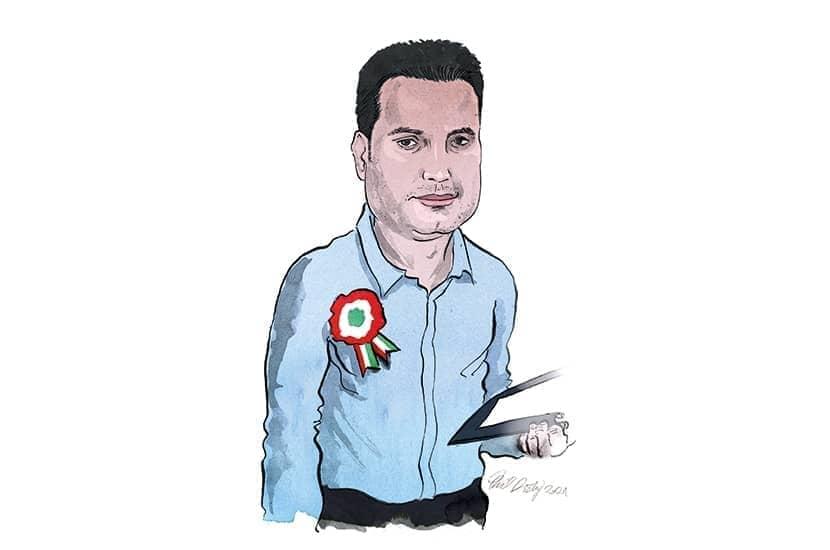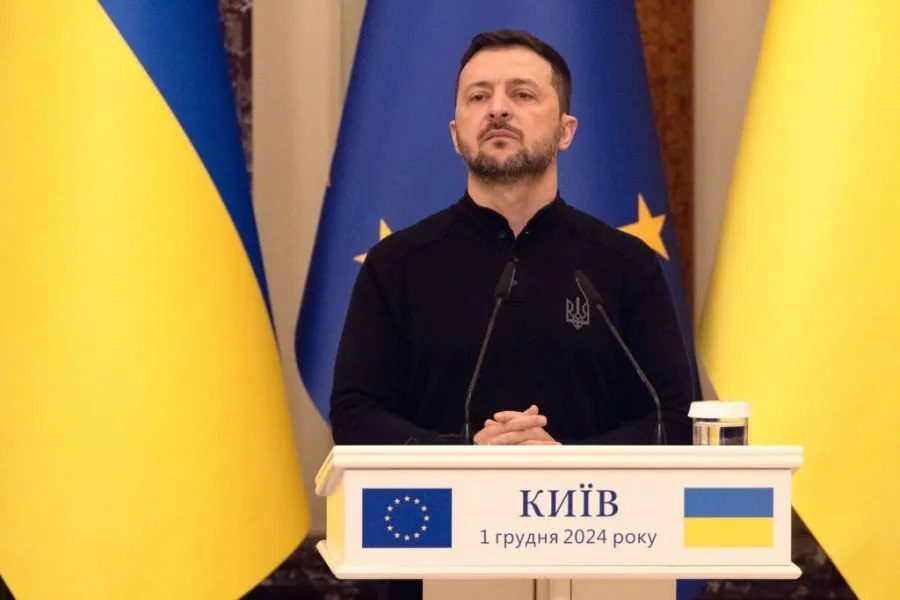Hungarian politics has a lot to offer: sex tapes, offshore bank accounts, police-dodging MEPs hanging off drainpipes, supposedly left-wing parties cheerfully backing anti-Semitic parliamentary candidates. Nevertheless, most observers would admit that there has been stagnation in the past few years. Hungary’s politics have become a stale exchange of insults between familiar faces.
Thank goodness, then, for Péter Márki-Zay, who has opened a window and let in some fresh air. He has been chosen by the opposition to the government as their candidate for prime minister in next year’s general election. And that means practically all the opposition parties in the Hungarian parliament working together.
The crushing two-thirds majority that Prime Minister Viktor Orbán’s Fidesz party has enjoyed in parliament for nearly 12 years has created some unusual bedfellows. You have former communists in league with the far-right (although the far-right party is led by someone whose relatives were in Auschwitz — you just can’t top Hungarian politics for the peculiar).
It can’t be emphasized enough the extent to which Márki–Zay has come out of nowhere, politically and geographically. In 2018, he decided to stand for mayor in his home town of Hódmezóvásárhely, as an independent. Hódmezóvásárhely is a small place (under 50,000 inhabitants), a satellite of the big southern city Szeged. Jokingly (I assume) referred to in the past as the “peasant Paris”, the town was seen as the fiefdom of one of Fidesz’s big beasts, János Lázár. It had been under Fidesz control since the first democratic elections in 1990.
What happened in Hódmezóvásárhelyis very instructive. Márki-Zay portrayed himself as a concerned local citizen rather than as a politician — a word that in Hungary has generally become synonymous with “thief.” He didn’t have a party, he was a member of a “movement.” Full marks for marketing, because that’s precisely his background. He was endorsed by a number of opposition parties and won convincingly.
While no one would accuse Orbán of complacency or of not paying attention to detail, there has been complacency, hubris and a sense of entitlement in the ranks of Fidesz. Hence the loss of Hódmezóvásárhely — which I suspect they will rue for years.
Becoming mayor of Hódmezóvásárhely didn’t make Márki-Zay a household name (most people in Hungary, like most people everywhere, don’t like to think too much about politics). It was through the opposition alliance’s electoral nomination process and the television debates that he established himself as a new star in Hungarian politics. The left-wing opposition factions perhaps arrogantly assumed that one of their candidates, Klára Dobrev or Gergely Karácsony, the mayor of Budapest, would win.
Dobrev and Karácsony came across as the victims of careful media coaching, however. Márki-Zay was punchy, natural and business-like in comparison. He succeeded in reaching new voters.
It’s quite an irony. Pretty much by accident, the principally left-wing alliance has come up with a formidable candidate to challenge Viktor Orbán, yet one who is a lot like Viktor Orbán.
Márki-Zay is, you see, an unrepentant conservative. He used to support Fidesz. His poise, his slick answers, are very much like the prime minister’s. Like Orbán, he’s from the countryside. Like Orbán, he does God. In some respects, he out-Orbáns Orbán. Unlike the many western journalists who slam Orbán and recoil in disgust at the mention of Christianity, Márki-Zay attacks from the other side, condemning Orbán for not being Christian enough. Orbán has five children, Márki-Zay seven.
Márki-Zay’s résumé is unusual. He has a doctorate in economics, and a number of degrees, but he worked as a door-to-door salesman in Canada (probably good experience on the campaign trail). He has fluent English, German and French.
Can he win? Quite possibly, if the alliance holds together. Of course, they may be let down by their voters. Just because there’s an agreement between the party bosses in Budapest about being one happy family doesn’t mean that their longtime supporters around the country will play along.
Fidesz have a problem: they were prepped to fight a left-winger, but now they face someone who has described himself as a disappointed Fidesz voter. Tricky. It’s hard to attack Márki-Zay for his political record — because of course he doesn’t have one. Orbán also has the problem that in a democracy, voters just get tired of you, even if you’re doing a good job.
What happens if the opposition does win? In the television debates, it seemed that the agenda consisted almost entirely of smashing Fidesz and getting rid of Orbán. Hungary must be a world leader in rage politics. Things really didn’t progress much past that. Tediously ad hominem. You began to understand why Orbán has been in power for so long.
Márki-Zay’s declared aims are for the most part judiciously vague. Jail time for those who have embezzled and misused state funds is the main, unequivocal message, as it is for the other opposition parties. Then there are nebulous statements about “more Europe,” getting the euro, “European” levels of education and healthcare, proper pensions, being a better member of NATO.
An opposition win would create some immediate problems. Few among them have any experience of government and those who do are mostly associated with the disastrous government of Ferenc Gyurcsány. Márki-Zay may have done an excellent job of making sure the one-way signs are in good order in Hódmezóvásárhely, but running a country is a different gig.
Then there’s the certainty of in-fighting. I’m amazed that the alliance of six parties has held together so far, and I’m still waiting for someone to throw their toys out of the pram before polling day, which is still some months away. If the alliance gets into power, there will be punch-ups every day.
There’s also the question of who would end up as the prime minister if the opposition wins. The international media, the predominantly left-leaning international media, CNN, Newsweek and the Guardian have given Márki-Zay a joyous thumbs-up, as the Orbán-slayer. But that doesn’t mean he’d necessarily become prime minister even if his side won.
Under the Hungarian system, parliament votes to decide who is the prime minister. So that leaves open the possibility that even if Márki-Zay plays a blinder, harvests votes and brings down Fidesz, the fact that he is the “candidate for prime minister” guarantees nothing. The alliance, or the bulk of the alliance, could finally dump him, though it would be a snub to the electorate, and place someone else in office.
This isn’t a conspiracy theory. Ferenc Gyurcsány, the leader of the DK, in the self-sabotaging tradition of the Hungarian opposition, has already bluntly stated ‘we can choose the prime minister’. A former prime minister himself, Gyurcsány is probably the most disliked politician in Hungary. He has the distinction of being disliked by right and left.
Gyurcsány was once a junior member of the Communist party, though he was senior enough to do nicely out of the privatization when state assets were doled out. He is one of the moneybags of the opposition, living in a plush villa in the Buda hills, a property confiscated from a Jewish family. Klára Dobrev (Gyurcsány’s wife) and Gergely Karácsony were dismissed as Gyurcsány’s sock puppets by Fidesz. Now the ‘Stop Gyurcsány, Stop Karácsony’ posters put up by Fidesz have been replaced by ‘Stop Gyurcsány, Stop Márki-Zay’ posters. That’s crude electioneering for you.
But however the votes go, Márki-Zay looks like a winner of this election cycle. He will definitely be an MP, and he will be for some time to come a national figure. At 49, he’s young enough to bide his time for the next election. He’s played the game extremely well so far. We’ll discover in time whether the former door-to-door salesman has an empty suitcase or not.
This article was originally published in The Spectator’s UK magazine. Subscribe to the World edition here.

























